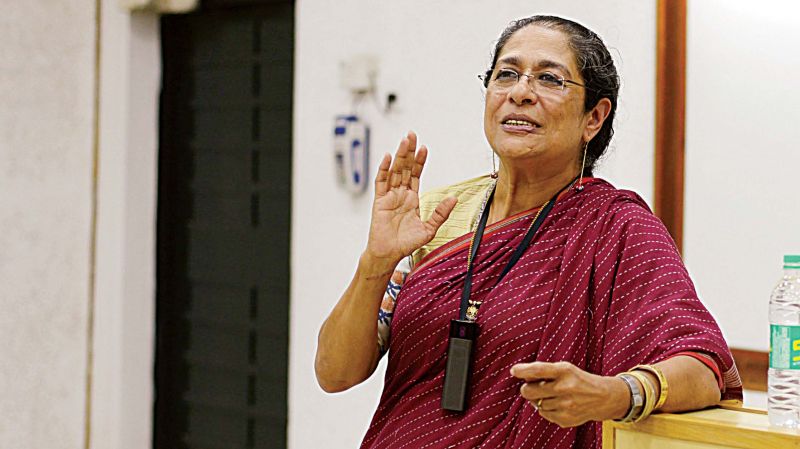Arundhati Nag, an artist and an agent of change
When Arundhati Nag decided to build Ranga Shankara, nobody believed she could do it.

She is Bengaluru's very own Alkazi. Arundhati Nag, the founder of Ranga Shankara is one of the stalwarts of the Indian theatre scene and now, she's using her phenomenal talent for the arts to spread awareness on gender equality. Nag has, in collaboration with philanthropist Rohini Nilekani, put together EQUAL, a new biennial that will be part of the journey toward women reclaiming their space.
"Why am I doing this? Don't you think it's necessary?" she asks at once. "We have independent efforts by groups that work for the rights of women, the LGBT community and sex workers. They're all different takes on a large issue but every one of these activists is working to alleviate inequality."
Today, public culture has grown increasingly violent - the results of this were plain to see at the debacle that took place on New Year's Eve. Women are caught in a dichotomy - they are celebrated in some spaces and denegraded in others. Violence against women takes place in different forms and most women choose to bear their ordeals in silence. The idea of using theatre to create gender awareness had been on her mind for a long time, "I was sceptical about taking the plunge into activism. Theatre is really all I know," she said.
Despite her activist urges, she dedicated her efforts entirely to Ranga Shankara, which has, over the last decade, become a hotbed for contemporary theatre, drawing artistes of all kinds from across the country. "We had our thematic plays, work for children and 400 performances a year. It kept us up to the eyeballs in work. There was little time to do anything else, although perhaps we weren't addressing the real issues." Taking responsibility for a larger cause became a greater priority, however, "We needed a larger peg on which we could hang our work. Serious thought needs to be brought into the work being done in the real world."
When the time finally came to take the leap, using the arts as a medium seemed the natural choice. "I would have to sit through half-a-dozen seminars to understand what this three-day festival contains," she said. "Theatre reflects society. Using art drives the point home and engages a person's heart too. He or she goes home filled with the urge to contribute to society," Nag explained. "Art forms are agents of change."
There is a growing need for art to engage with social messages, although Nag does feel there is very little of this happening. "Most popular spaces have washed their hands off the idea of intervention or conjunction between serious dialogue and space. In this festival, we have an entire day dedicated to transgenders. We don't wake up to the reality of things until we have a child in the family with a different sexual preference." It doesn't end here. Nag hopes to bring transgenders into Ranga Shankara and teach them lighting. "I didn't know if the theatre community was sensitised enough for even that! I can't bring them in without ensuring they will be treated well."
To her EQUAL is an opportunity, the chance to plant the seed of tolerance into the minds of the theatre community and bring about a change. "A subtle, low-key change," she adds, smiling. "Gender equality, or my perception of it, applies both to men and women. Gender cannot be seen in isolation. After the festival, I'm going to sit my staff down and ask them what they learned from the experiences.
Where do these altruistic concerns come from? "Theatre is a very generous space," she says at once - and modestly! "Nobody ever asked me if my dad was rich. They took me as I was - that has made me open and acceptable to different kinds of people. I learned to accept them and they learned to accept me in return.”


